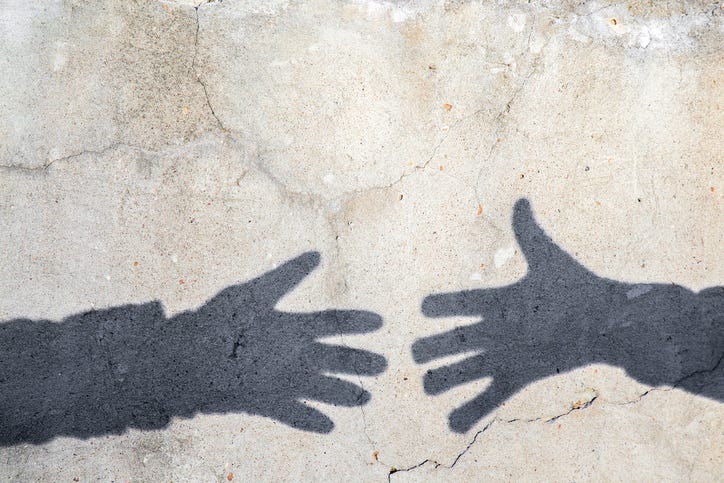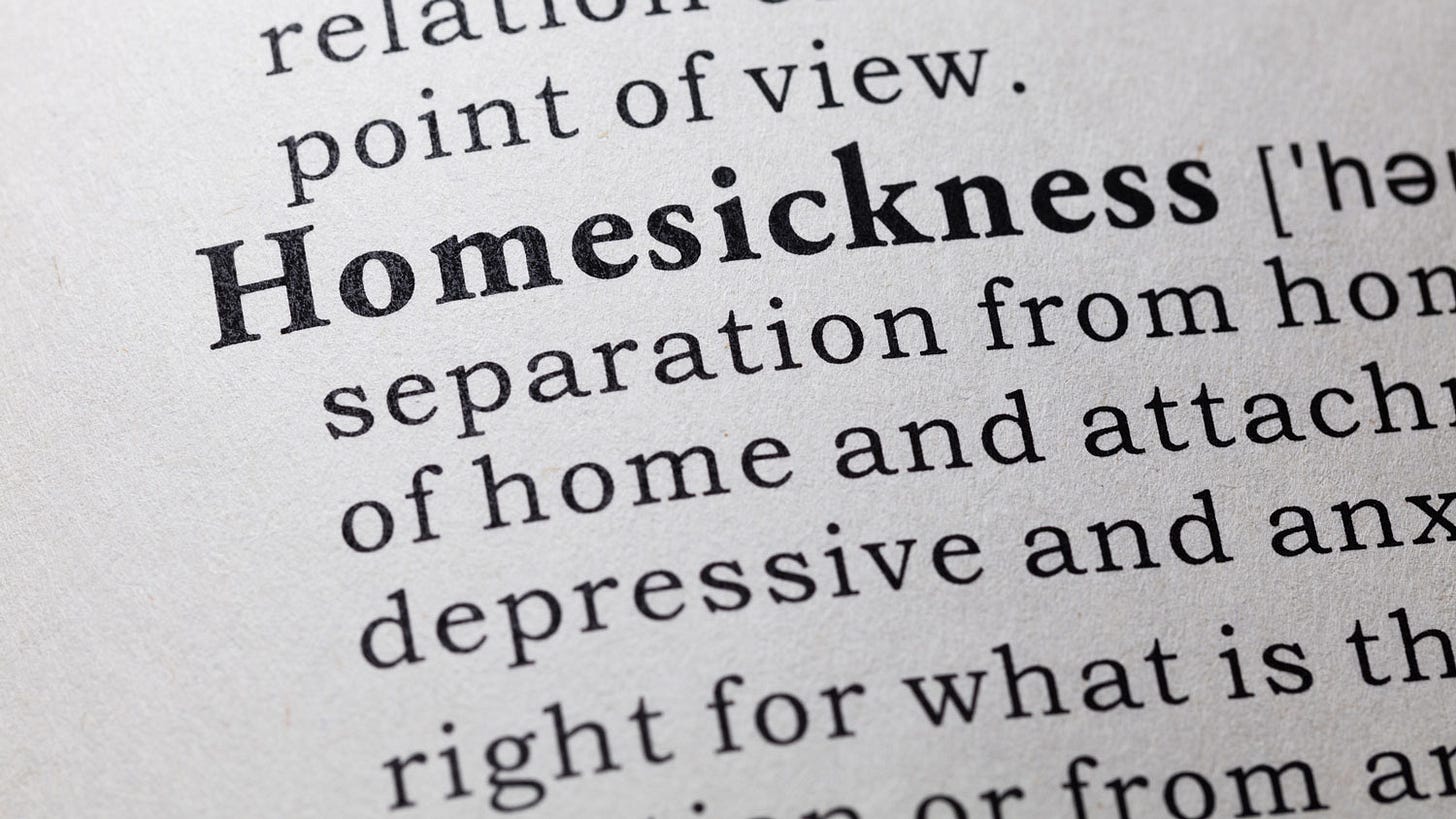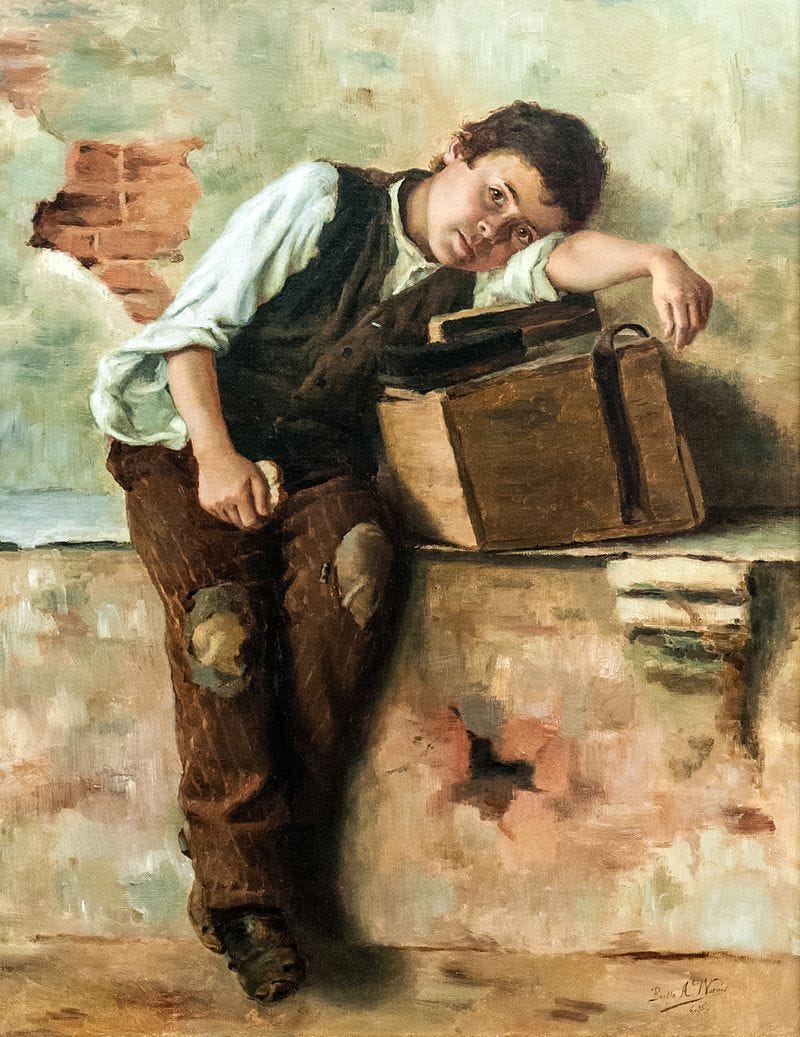Even Happy Expats Get Homesick
Few will actually admit it, but life abroad can be brutally difficult.
In one of the most curious paradoxes of my 8+ years as an American in Italy, I only suffer culture shock when I return home to my native shores. I’m not alone in this. I have friends who find themselves so unnerved when they go stateside, they refuse to do it anymore. They’ve nested, you see. The U.S., especially seen at a remove, appears awful and dangerous. Why leave Europe at all?
But it’s a bubble we live in over here. All British and American expats (I can’t speak to other nationalities, but I suspect a similar experience) live in a beautiful, languid bubble. Even those who, like John, are 100% proficient in Italian are never Italian in the strictest sense. They have Italian friends. They are invited to Italian get-togethers. But they are and will forever be stranieri. Foreigners.
And this doesn’t mean Italians aren’t welcoming. They are. But you are either family or you aren’t; Italian or you aren’t. It’s really that simple.
And that distinction is felt differently by different stranieri. Some are aware of it; others, only a little; a few, not at all.
I was raised in a culture that is in many ways antithetical to this one. With Americans, it’s all money, hustle, and naked ambition. With Italians, it’s family and bella figura, making a good impression, especially in front of your friends—a cultural phenomenon that appears to be reflected in the sheer number of enormous, gas-chugging SUVs Italians are driving these days. Everybody here, regardless of income, seems to have a $70,000 car.

Yesterday, John visited a friend who owns a restaurant here in Amelia. Her sous-chef, a humble and by-no-means wealthy woman who chops vegetables for a living, came trundling out to her massive SUV after her shift and drove home. I’d bet any amount of money she lives in the same house she grew up in. Most Italians do.
But make no mistake—bella figura is not the same thing as the narcissistic “flexing” we do in the States. Bella figura is about dignity and hospitality, leaving the house in stylish, age-appropriate clothing, being unfailingly polite even to clueless stranieri like Yours Truly, and always putting your best foot forward. It’s a charming and so-very-Italian code of acceptable conduct. For this reason, I have never seen an Italian woman running errands in activewear. Or flipflops.
Before moving here, I wore nothing but activewear and flipflops, although to be fair, I did work in a gym.
It sends a signal, doesn’t it, being an American going to an American grocery store in Lululemon? That signal is: I work out. I’m fit and athletic. It could also mean “Unlike you, I have sufficient money and leisure time to go to the gym at two in the afternoon, you loser.”
To an Italian woman? That’s just goffa. Gauche.
As an expat, even one in a bubble, even one fluent in Italian, you are continually reminded that there’s this other secret language you don’t know, the language of social cues, such as bella figura. So you learn them, or at least as many as you can. But even when you’re good at recognizing this arcane new vocabulary of social cues, they’re still not your cues. You didn’t grow up with them. They will always be an outfit that doesn’t quite fit.
Between the language, the social cues, the wildly different pace and lifestyle of Italy, the baffling store hours, the Byzantine bureaucracy, the metaphorical doors that slam shut in your American face, the clannishness, the bella figura, the learned helplessness, the glad-handing that doesn’t always result in a genuine connection, the bewildering lack of ambition, the inefficiency, the churlish government employees, and the surprising lack of forward momentum in the Italian music and art scene, there are times—and, yes, I realize that I am actually saying the quiet part out loud—but there are times when all you want to do is throw yourself headfirst back into your own culture, even if it kills you.
Whew! That was hard to admit. Disloyal, even. There is a subtle pressure among expats to always present a united happy front.
In no way is this a rejection of Italy. I love this country. Nor am I complaining about it, wishing it to be different or more American. Lord, no.
What I’m saying is this: Who we are, what we are, is wholly informed by the landscapes we grew up in. I’m speaking of “landscapes” in the broader sense, one that encompasses language, culture, social cues, topography, all of it. Even when you reject where you came from, it’s still a part of you. Like it or not, there’s no getting away from it. They’re called “roots” for a reason.
With some notable exceptions, the happiest expats I know are the ones who shuttle between Italy and their native lands. They don’t have to depend on “the Italian system” for anything. They come, they enjoy, they leave. In this way, Italy forever remains a beautiful dream, a place they can’t wait to get back to. The human heart is uniquely adapted to yearning, and trust me when I tell you, those expats yearn.
But for expats like me and John who aren’t retirement age and don’t yet have a pension to live on, and who live here fulltime, things can get dire. We’re not allowed to work here. Being a digital nomad (me) is great, but you spend an awful lot of time chasing your money or your next job, and when the weeks stretch out between gigs, and your gas bill sits unpaid … you begin to wonder how much longer you can keep doing this. You can be poor and young, but being poor and middle-aged is a whole different can of worms. Sad, tired worms.
Some of this is the effect of the holidays, of course. It’s hard to be away from family during these periods. But it goes so much deeper than that. Instead of yearning for Italy, you begin to yearn for the sound of your native tongue being spoken around you. You secretly crave the convenience of going to the store at two in the morning. What you really miss is being able to recognize all the social and cultural cues. When you’re on the back-nine of life, sometimes, sometimes, you find yourself wondering if going back in the States would really be all that bad.
Before I left Houston, I used to do personal training for this lovely woman who’d lived in the south of France for five years. “How on earth did you ever bring yourself to leave?” I asked in pained bewilderment.
I’d just spent an hour on the 1-10 trying to get to her house. My overpriced apartment with the sheetrock, the ugly beige wall-to-wall carpeting, and the plate-glass windows that didn’t open cost me $1600 a month. Most of Houston is brutally and unnecessarily ugly. Living in the south of France sounded like heaven to me.
My client opened her mouth to respond. But after seeing the look in my eyes, she shut it. I know why. She was wise enough to remember that you should never waste time explaining yourself to somebody who can’t or doesn’t want to understand you.
I was that person. I wanted to understand, but I couldn’t. My life experience hadn’t included the longing for home yet.
Hiraeth (pronounced he-reyeth) is a Welsh word that describes a specific type of homesickness. It’s yearning for a home you can't return to, a home that doesn’t exist anymore, or one that perhaps never existed. Hiraeth encompasses longing, nostalgia and yearning, and sometimes the feeling doesn't always go away, even when you go back.
When I go home, I am haunted by the past. When John goes home, he is haunted by a New York City he no longer recognizes. We are both haunted, but for me, it’s about a time in my life as a mother of young children, a time that doesn’t exist anymore; for him, it’s about a city that went and changed while he was looking the other way.
As we get older, the memories keep piling up, don’t they? We accumulate them like glitter domes won at the state fair when all along we’d planned to go to Disneyland. We yearn—there’s that word again—to go back and see if what we remember was real, if we can recapture it.
I think you already know the answer to that question. But it’s rarely enough to make us stop trying to rediscover the past or form like substitutes. We do it with wives (ever notice how wife number two usually looks like wife number one when she was younger?). We do it every time we rehash the past with old friends.
Try grabbing a butterfly in a net, and all you’ll get for your efforts is a handful of dust. And maybe that’s the point. Going home enables us to see how all the dots in our lives are connected, but the problem is and will forever be: we aren’t who we were anymore.
So, no. After a long time on foreign shores, we can’t go home again. Not in the way we want to.
Perhaps the best we can hope for is to make a new home inside our old one.
Copyright © 2022 Stacey Eskelin
What are your thoughts? I’m curious to know. Feel free to share them in the comments section below.





Heartbreaking piece. I love Italy so very much (and live in NYC), but I don't know that I could ever move there permanently. The ease of life in the US is too big a pull. The bureaucracy in Italy would make me go postal; I'm not a patient person. The Schengen Agreement works well for me; I'd happily do 90 in/out, shuttling between the two ideals.
PS. How on EARTH would anyone ever know if one were to work remotely for a US-based company whilst living in Italy?? Seems the best of both worlds: working for one; living in the other...
By the time I was 16 or so -- about the same time I understood that I would never get married -- I also came to realize I would never have a home to come home to. I chose the army when I enlisted straight out of high school precisely because it was the one branch of the armed forces that had nothing anywhere near San Diego. (Even the Air Force had a radar installation in the mountains to the east.)
I mention the marriage bit because the two are connected: it isn't that I didn't want to marry -- or have a home to come back to, for all of that. But I understood that the world had issued a hard "REJECT" order on me, and these things would always be denied. So I find myself missing having a place to miss. Brings me back to this song: https://www.youtube.com/watch?v=p2cKnGZC9iI
FWIW, I thought the "haunted" paragraph was an especially good piece of prose.